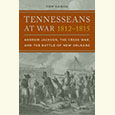Decoding a Civil-War Mystery
In Linda Lee Peterson’s latest novel, a San Francisco editor returns to her Southern roots to unravel ancient family intrigue and forbidden love
In Linda Lee Peterson’s third novel, The Spy on the Tennessee Walker, San Francisco magazine editor Maggie Fiori learns that her great-great-great grandmother Victoria was a nurse who treated soldiers on both sides of the Civil War and who engaged in a love affair with a freed slave. Maggie and her family dig into the family records with intensity, their curiosity fueled by a newly unearthed daguerreotype of Victoria, whose resemblance to Maggie is eerie.
 In fact, it all begins with that photo, which Maggie’s aunt and uncle send to her from their trove of family treasures in Oxford, Mississippi. It’s what inspires her to take her husband to Oxford to explore the records and journals her family has kept through the generations. Between stops at Oxford’s Square Books and a tailgating party before an Ole Miss football game, Maggie and her Uncle Beau station themselves in the old henhouse to leaf through the yellowed pages of their history. One paper begs for a closer inspection: Victoria, she realizes, “was remanded to Old Capitol Prison,” but why?
In fact, it all begins with that photo, which Maggie’s aunt and uncle send to her from their trove of family treasures in Oxford, Mississippi. It’s what inspires her to take her husband to Oxford to explore the records and journals her family has kept through the generations. Between stops at Oxford’s Square Books and a tailgating party before an Ole Miss football game, Maggie and her Uncle Beau station themselves in the old henhouse to leaf through the yellowed pages of their history. One paper begs for a closer inspection: Victoria, she realizes, “was remanded to Old Capitol Prison,” but why?
The charges were espionage and bigamy—Beau knows that much, and he relinquishes to Maggie and her family a set of their ancestor’s coded journals. Together they work to decipher more about this courageous Southerner, whose convictions lay with the Union cause and who traveled by horse to treat the wounded on both sides of the battlefield.
Peterson uses journal entries and letters from Victoria to help frame the narrative, which is entirely fictional but whose telling nonetheless offers insights into the agony of the era. “I do not shrink from the hardest work of nursing, cleaning up after the endless surgeries for amputation, cleaning up when the dread dysentery strikes,” writes Victoria, who served as a nurse at Chimborazo Hospital in Richmond, Virginia:
Somehow, no matter how much pain a man is in, it is restorative to do nothing more than wash his hands and face and then, even though it can be so painful and tender, to wash his wounds as well. Then we deliver breakfast: some bread or biscuit, with butter if we are fortunate enough to find some, meat for strength, and for those in the most fragile state, an egg, just coddled. Oh, that is sometimes the most wrenching part of our duties, though. More than once I have delivered breakfast to a young soldier, and returned to collect his dish and found that while I was about my work, he had drawn his last breath.
Though Peterson’s ample dialogue sometimes feels inauthentic, her third novel weaves in fascinating bits of history about the Civil War and its unlikely players. The Spy on the Tennessee Walker will no doubt find an eager audience with genealogy buffs and Civil War enthusiasts, among others.

Liz Garrigan is a senior editor at Worldcrunch, which delivers global journalism to English-language readers. Formerly the editor of the Nashville Scene, Garrigan now lives in Paris, France.


